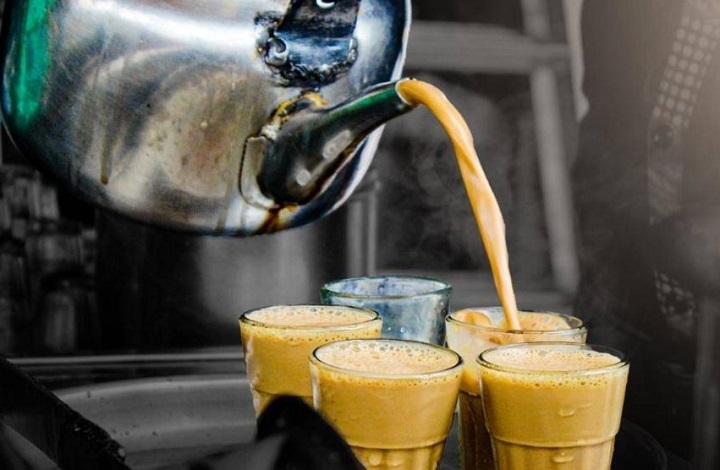Headlines:
• Global Nuclear Arsenal Expected to Grow for First Time in Decades
• Ukraine Admits Russia Is Winning in the Donbas in Plea for More Weapons
• Russia Gains $100 billion on Energy Exports since Invasion of Ukraine
• People in Pakistan Urged to Drink Fewer Cups of Tea
Global Nuclear Arsenal Expected to Grow for First Time in Decades
The global stockpile of nuclear weapons is expected to rise in coming years for the first time since the Cold War due to global tensions, a leading arms watchdog has said. In its annual report the Stockholm International Peace Research (SIPRI) said that all nine nuclear-armed countries are increasing or upgrading their arsenals. For decades, the number of nuclear weapons worldwide has been decreasing steadily. It is now less than one-fifth of what was in the arsenals of the nuclear powers at the height of the Cold War in the 1980s. Last year, however, SIPRI had already identified a trend reversal towards more modern nuclear weapons. “We emphasise that nuclear war cannot be won and must never be waged,” the US said in a joint statement at the beginning of January. But SIPRI noted that all five countries had since further expanded or modernised their arsenals. The US is looking to modenrise it nuclear weapons despite pressuring other nations to agree nuclear disarmament and restriction agreements.
Ukraine Admits Russia Is Winning in the Donbas in Plea for More Weapons
In recent weeks, Ukrainian officials have been more candid about their losses on the battlefield as they plead with the US and other Western nations to send more arms. Ukrainian officials told The Wall Street Journal that without a significant increase in military aid, Ukraine will face a defeat in the eastern Donbas region. “In this war, the victory will be with the side that has more and better weapons. And, if Ukraine doesn’t obtain enough weapons in time, it will bleed out,” said Anton Gerashchenko, an adviser to Ukraine’s interior minister. US officials are also expecting Russia to continue making territorial gains in the Donbas. A Pentagon official told The Washington Post that Russia will likely control the entire Luhansk Oblast within a few weeks.
Russia Gains $100 billion on Energy Exports since Invasion of Ukraine
Russia earned nearly $100bn from oil and gas exports during the first 100 days of the war in Ukraine, according to a report. Revenues have been falling since March, as many countries shunned Russian supplies, but remain high, the independent Centre for Research on Energy and Clean Air (CREA) found. It also warned of potential loopholes in efforts to curb imports from Russia. The EU, US and UK are among those to have pledged to cut Russian imports. But the CREA report found Russia still earned $97bn in revenue from fossil fuel exports in the first 100 days of the Ukraine conflict, from 24 February to 3 June. The European Union made up 61% of these imports, worth approximately $59bn. Overall, exports of Russian oil and gas are falling and Moscow’s revenue from energy sales has also declined from a peak of well over $1bn a day in March. But revenues still exceeded the cost of the Ukraine war during the first 100 days – with the CREA estimating that Russia is spending around $876m per day on the invasion. The CREA report said the EU’s planned oil embargo would have a significant impact. But it warned large quantities of Russian crude oil were now being shipped to India, which increased its share of Russia’s total crude exports from around 1% before the invasion of Ukraine to 18% in May. The report said a “significant share” of this was being refined and sold on – often to customers in the US and Europe – which it described as “an important loophole to close”.
People in Pakistan Urged to Drink Fewer Cups of Tea
People in Pakistan have been asked to reduce the amount of tea they drink to keep the country’s economy afloat. Sipping fewer cups a day would cut Pakistan’s high import bills, senior minister Ahsan Iqbal said. The country’s low foreign currency reserves – currently enough for fewer than two months of all imports – have left it in urgent need of funds. Pakistan is the world’s largest importer of tea, buying in more than $600m (£501m) worth last year. “I appeal to the nation to cut down the consumption of tea by one to two cups because we import tea on loan,” Mr Iqbal said, according to Pakistani media. Business traders could also close their market stalls at 20:30 to save electricity, he suggested. The plea came as Pakistan’s foreign currency reserves continue to fall rapidly – putting pressure on the government to cut high import costs and keep funds in the country. The request to reduce tea drinking has gone viral on social media, with many doubting the country’s serious financial problems can be addressed by cutting out the caffeinated beverage.

